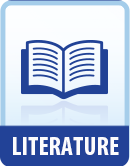|
This section contains 9,634 words (approx. 33 pages at 300 words per page) |

|
SOURCE: "The Poet as Teacher: Morality in The Seasons," in The Varied God: A Critical Study of Thomson 's "The Seasons, " University of California Press, 1959, pp. 143-75.
In the excerpt that follows, Spacks concentrates on a trait that separates Thomson from Romanticism: a tendency to make nature a vehicle for and secondary to moral messages regarding human behavior. In general, she stresses a prevailing inconsistency in Thomson's images of nature.
And hark how blithe the throstle sings;
He, too, is no mean preacher.
Come forth into the light of things,
Let nature be your teacher.
So Wordsworth was to write in Lyrical Ballads, with a perception of the possibilities of nature as teacher far different from anything ever hinted by Thomson. Wordsworth's "nature" taught by working on the emotions; Thomson's did nothing so undignified. The eighteenth-century poet, in his concern with morality, falls in many ways into the...
|
This section contains 9,634 words (approx. 33 pages at 300 words per page) |

|


